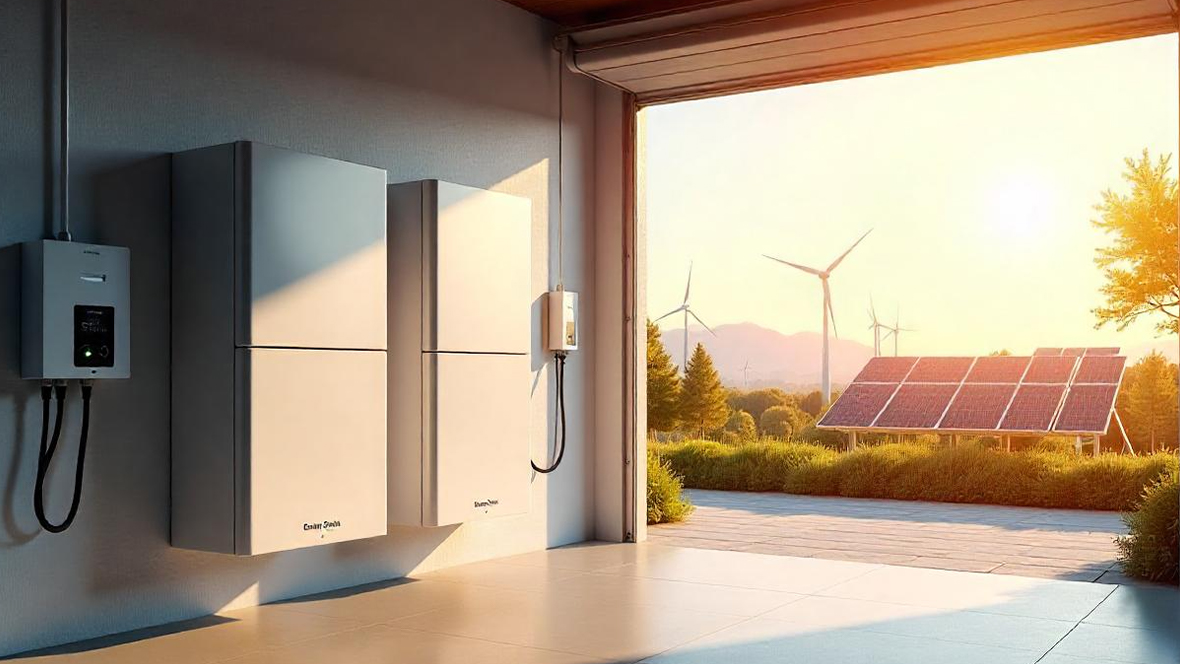Introduction
Is solar battery storage worth it is gaining popularity among homeowners looking to maximise their solar investment. But is it the right choice for your home? This in-depth guide explores the benefits, costs, and key considerations to help you decide if adding a battery to your solar PV system is worthwhile.
What Does a Solar Battery Do?

- Stores Excess Solar Energy: Capture surplus energy generated during the day for use at night or during power cuts.
- Maximises Self-Consumption: Use more of your own solar power, reducing reliance on the grid.
- Enables Backup Power: Some systems provide emergency power during outages, offering peace of mind.
Types of Solar Batteries
- Lithium-Ion: Most common, offering high efficiency, long lifespan, and compact size.
- Lead-Acid: Cheaper but bulkier and with a shorter lifespan.
- Hybrid Systems:Combine solar, battery, and grid for maximum flexibility.
Costs & Options
| Battery Capacity (kWh) | Typical Price Range | Suitable For |
|---|---|---|
| 4–5 | £2,000–£6,000 | Small/medium homes |
| 8–10 | £6,000–£10,000 | Larger homes, higher usage |
Prices include solar panels and battery installation uk and may vary based on technology and installer..
Is Solar Battery Storage Worth It
1.Upfront Cost
- Adding a battery typically increases your solar system cost UK by £2,000–£10,000.
- Larger batteries cost more but store more energy.
2.Savings Potential
- Best for High Evening Usage: If your household uses most energy after sunset, a battery can significantly reduce grid reliance.
- Time-of-Use Tariffs: Batteries let you store cheap, off-peak electricity for use during expensive periods.
- Export Tariffs: Some batteries allow you to sell surplus energy back to the grid..
3.Payback Period
- The payback period for batteries can be long—often 10–20 years—depending on your usage and energy prices.
- • Batteries offer non-financial benefits like energy independence and protection against future price rises.
Key Considerations Before Buying
- Your Energy Patterns: Analyse when and how you use electricity.
- System Compatibility: Ensure your solar PV system supports battery integration.
- Warranty & Lifespan: Look for batteries with at least a 10-year warranty and high cycle life.
- Installer Expertise: Choose experienced, accredited installers for optimal performance.
Solar Panels Pros and Cons Table

| Reduces electricity bills | High upfront cost |
|---|---|
| Increases energy independence | Long payback period |
| Provides backup during outages | May not suit all usage patterns |
| Supports grid stability | Requires space for installation |
Frequently Asked Questions
Yes, but check compatibility and consider the cost of retrofitting.
Most last 10–15 years, depending on usage and maintenance.
Minimal maintenance is needed, but regular checks are recommended.
Takeaway
solar battery storage uk isn’t suitable for everyone, but for many households, it can increase savings and energy independence—particularly as prices drop and technology advances. Consider your home’s energy usage and long-term objectives before making a decision.
